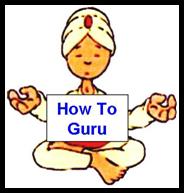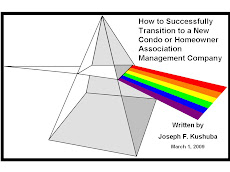
Non-profit condo and homeowner associations face tough challenges to stay relevant, effective and viable. Given the voluntary nature of their BoD, they can have a particularly difficult problem of getting the best people to run their business. But, what skills, traits, and characteristics do the “best” Board members have? Shown below are the “How-To Guru’s” top 10 best dressed Board members characteristics or skills that should be nurtured and grown at every opportunity.
Leadership. They help create a common vision for the association, provide clear direction and priorities, and clarify roles and responsibilities. They step forward to address difficult issues and stand firm when necessary. They can assert their own ideas and can gain commitment and support from others. They build effective teams and can motivate others. Finally, they can champion change by challenging the status quo, acting as a catalyst for change, and paving the way for effective implementation.
Motivation. They drive for results and success and convey a sense of urgency. They drive issues to closure and persist despite obstacles and opposition. They demonstrate high standards of performance, sets aggressive goals, and works hard to achieve them.
Association Knowledge. They understand governing documents backwards and frontwards and know their responsibilities and limitations. They know and adhere to state law and administrative rules. They are able to use financial and quantitative date to establish realistic budgets and manage the business of the association. They possess up-to-date knowledge of condo or homeowner association issues and rely upon expert resources when appropriate. They have an understanding of relevant issues to the association and keeps that knowledge base up-to-date.
Organizational Strategy. They emphasize the need to deliver quality products and services at the least amount of cost to the members of the association. They anticipate association needs, take action to meet those needs, and continually search for ways to increase the satisfaction level of its members. They foster the wise use of scarce resources and look for ways to do more with less. They identify critical, high pay-off strategies and prioritize team efforts accordingly.
Self-Management. They demonstrate principled leadership and sound business ethics. They show consistency among principles, values, and behavior. They build trust with others and follow through on their commitments. They handle day-to-day work challenges and are willing to adjust to multiple demands, shifting priorities, ambiguity, and rapid change. They show resilience in the face of constraints, frustrations, or adversity and demonstrate flexibility. They spend the necessary time to prepare for and attend meetings, participate in discussions, review material, and ask questions.
Thinking. They consider a broad range of internal and external factors when solving problems and making decisions. They gather relevant information, consider a broad range of factors, grasps complexities and perceives relationships among problems/issues, seeks input from others, and uses accurate logic in analysis. They make timely and sound decisions, even under conditions of uncertainty.
Administrative. They develop short and long-range plans that are comprehensive, realistic, and effective in meeting association goals. They identify and implement effective business process and procedures for accomplishing work. They assign responsibilities, delegates and empower others, remove obstacles, and coordinates work efforts when necessary. They can allocate their own time efficiently, handle multiple demands and competing priorities, efficiently processes paperwork, and manages meetings effectively.
Communication. They speak clearly and express themselves well in groups and in one-to-one conversations. They crate an atmosphere in which timely and high-quality information flows smoothly between themselves and others and encourage the open expression of ideas and opinions. They actively listen to others. They prepare and deliver clear, smooth presentations and carry themselves well in front of a group. They convey information clearly and effectively through both formal and informal documents.
Interpersonal. They relate to people in an open, friendly, accepting manner, show sincere interest in others and their concerns initiates and develops relationships with others as a key priority. They develop effective give-and-take relationships with others and balance those needs with those of the association. They identify and cultivate relationships with key stakeholders representing a broad range of opinions and interests. They use informal networks to get things done and build strong external networks with people in the industry or profession. They show and foster respect and appreciation for each person whatever that person’s background, race, age, gender, disability, values, lifestyle, perspectives, or interests.
Manage Disagreements. Conflict is part of any dynamic condo or homeowner association. It arises because people care and want to do their jobs well. Conflict is beneficial when the focus is on finding the best solution. It becomes destructive when the focus is on people and “winning.” The goal should be to avoid “win/lose” situations and to ensure there is a productive resolution of conflict. The effective BoD members bring substantive conflicts and disagreements into the open and attempts to resolve them collaboratively and build consensus.









No comments:
Post a Comment